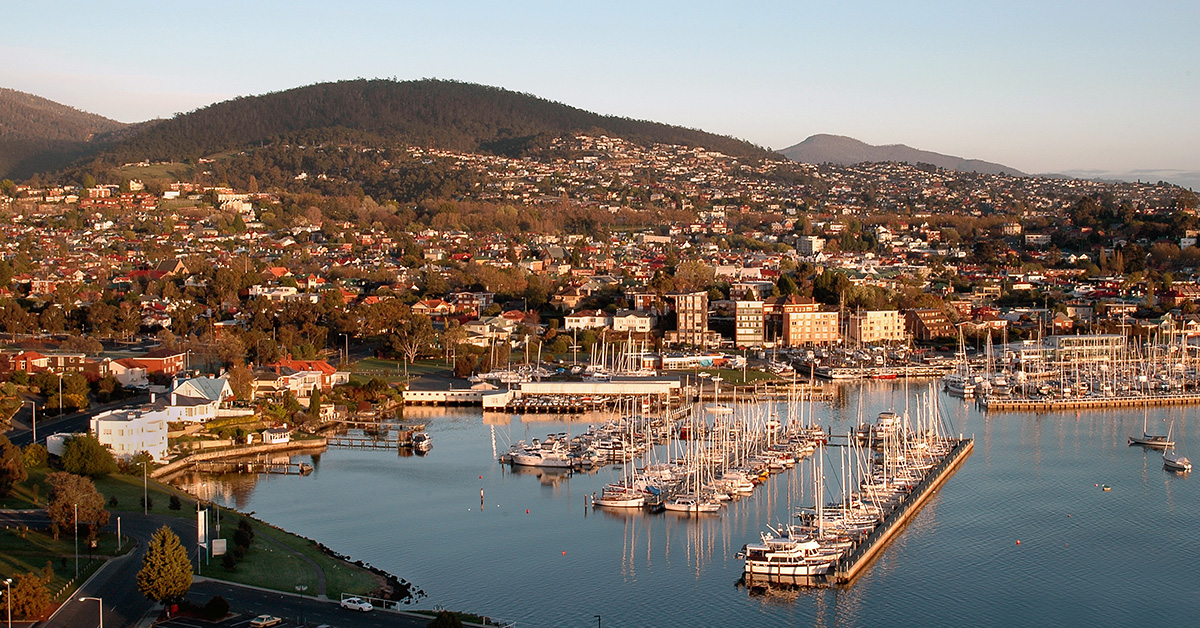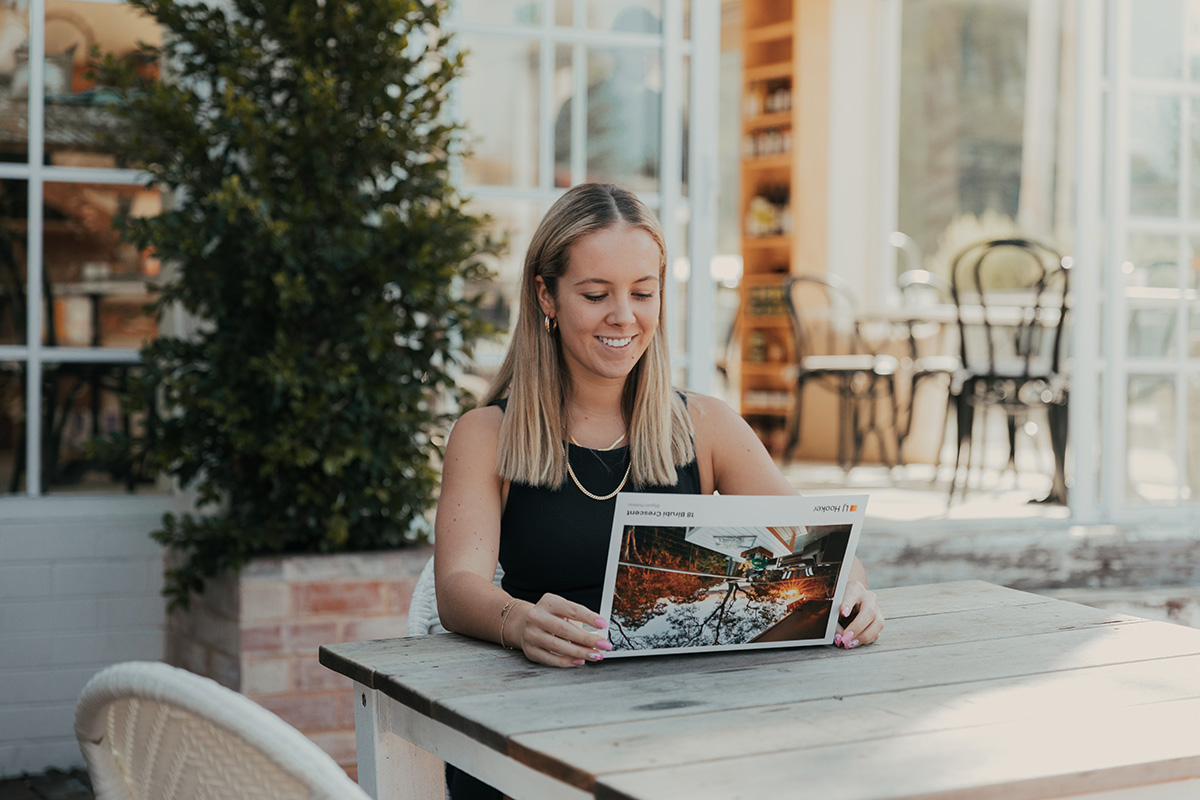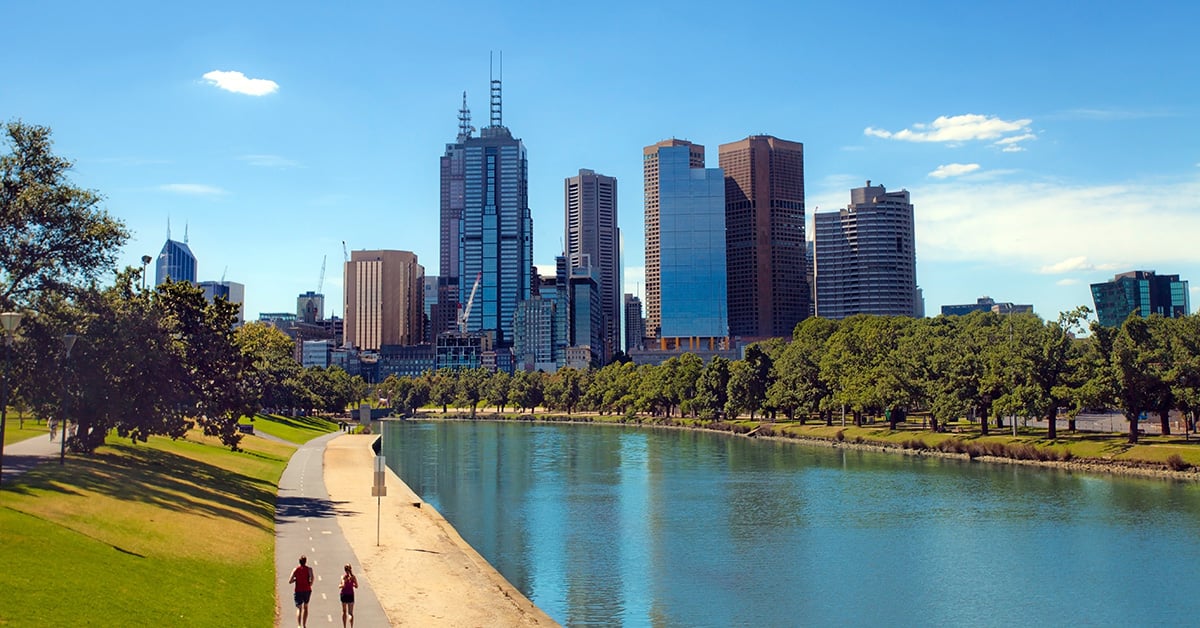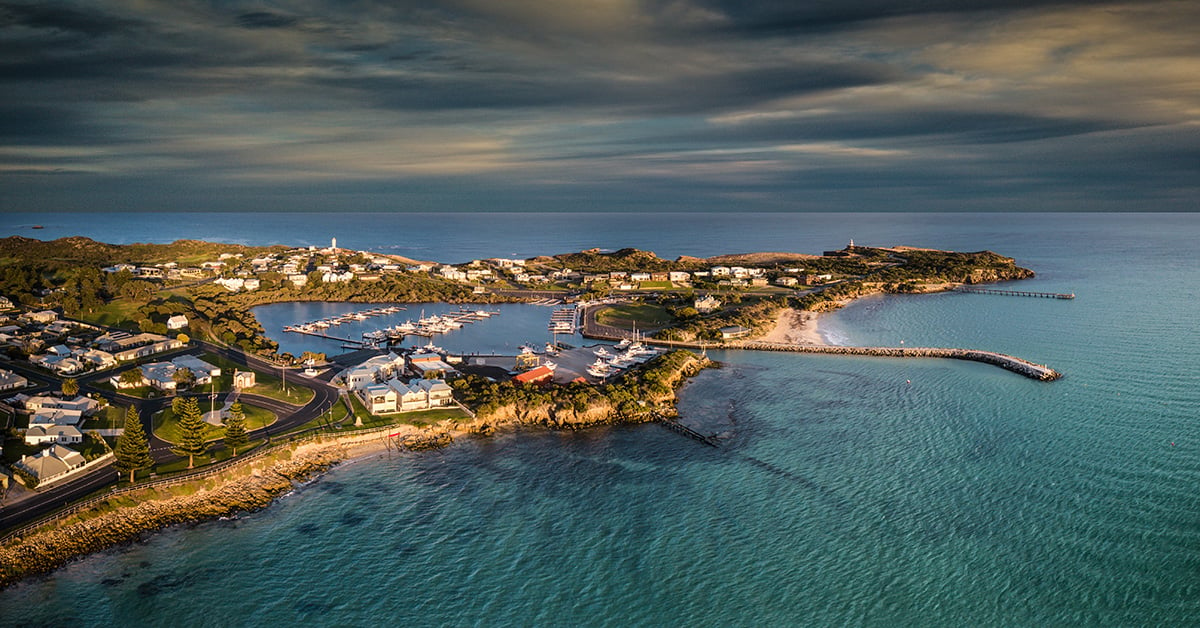First Home Buyers Guide for Tasmania
A complete guide to buying your first home in Tasmania
Ready to take your first step onto the property ladder and buy your first Tasmanian home? Just as with anywhere else in the country, there's a lot to take in when you're a first home buyer. However, with the right help and some handy resources on your side, things can be made a little easier. Here is our guide on to how to buy your first home in Tasmania.
Ways to buy your first home in Tasmania
Private Treaty
Purchasing a home by private treaty is perhaps the most usual way to buy. The vendor will pre-choose a price, and the estate agent will then try to arrange a sale. The aim is for the house to sell to as close to the asking price as possible.
Auction
At an auction, a reserve price must be met in order for the house to sell - simply put, that's the minimum that the home will go for. However, should the bids go higher than the reserve, the largest offer wins. As soon as the auction is over, the victorious party is required to sign the contract on the day.
Tender
When you buy a property via tender, you'll make a single offer, along with a deposit of up to 10 per cent of the asking price. The vendor will then either accept or reject the offer.
You can find out a little more about ways to buy by visiting the Tasmanian government's website for first-time buyers.
How's your money?
Before you even start searching for your first Tasmanian home, it might be a good idea to take stock of your finances. Do you have enough to put together 20 per cent of a home's value or price? You can work out median figures for this by using sites like CoreLogic RP Data and Residex.
You'll probably need to spend a good deal of time saving as well. The Australian Securities and Investments Commission's MoneySmart website has a dedicated page for tips on putting a deposit together. From weekly budgeting to lining up the right home loan, every decision has the potential to put a bit more in your pocket.
LJ Hooker Home Loans is an excellent source of many Home Loan products, with a wide range of mortgages tailored for first home buyers.
The Tasmanian First Home Owners Grant
As with all other states and territories, first home buyers in Tasmania have the opportunity to capitalise on some excellent financial benefits from the government. For Tasmanian first home buyers, this comes in the form of the first home owners grant (FHOG).
The State Revenue Office (SRO) notes that though this used to be a cool $20,000, the total available for first home buyers in Tasmania is now $10,000. The grant can be applied for in three different types of transaction: building a new home with a registered builder, buying a new home or an off-the-plan development, and building a property yourself.
The SRO has fact sheets which detail the eligibility criteria, from when construction is deemed to have started to the six-month stay you must make in the property to fully claim the FHOG.
The hidden costs of buying a new home in Tasmania?
If it is your first property purchase in Tasmania, you also may not be aware of some of the fees you will come up against. This includes:
- Stamp duty, which every property buyer must pay. This is payable within three months of a transfer, and unfortunately, there are no concessions regarding stamp duty for first time buyers in Tasmania. If your property costs you $250,000, say, you'll be paying $7,935 in stamp duty, on top of your mortgage registration fee and transfer fee. The state's handy stamp duty calculator will help you to figure out what you owe.
- You will also have to begin paying land tax once a year. This is payable by the owner as of 1 July each year, and varies depending upon the value of your estate. Anything from $25,000 to $349,999 will pay $50, plus 0.55 per cent of the value above $25,000. For properties worth $350,000 and above, you'll pay $1,837 plus 1.5 per cent of the value above $350,000. again, use the land tax calculator to figure out what you'll owe.
- Legal fees will fall between $1,500 and $3,000, depending on how complex your contracts are.
- Loan application fees - sometimes there are none, other times can rise up to $1,000. This can be waived by the lender.
- Getting your house independently valued will typically cost you around $300 - $500.
- Lenders mortgage insurance - if you need to borrow more than 80 per cent of the purchase price, you'll likely be charged LMI. This is a one-off payment to cover the lender if you default on the loan. The amount can vary, but you should allow for around $10,000.
- You'll be paying around $300 to $400 for a building or pest inspection, and $200 for a strata report.
On top of this, there will be fees to be set down for the various people you have helping you out. From solicitors to conveyancers (who handle the paperwork), the people working hard for you will need to be paid!
Where should you begin your search for a first home in Tasmania?
It's important to do your research on the property market in Tasmania, as this will give you a greater understanding of where to buy, and the associated cost.
- Both Australian Property Monitors and CoreLogic RP Data are renowned sources and property data and information you may not have considered.
- Sites such as domain.com.au, realestate.com.au and ljhooker.com.au are constantly updated to show you what's on the market.
Once you've gotten an idea as to what is out there, you'll need to decode what kind of property to buy. Will you search for an existing home, an apartment, or something completely different?
Where to look for a first home in Tasmania
When actively searching for a property to buy in Tasmania, getting in touch with your local LJ Hooker is the best way to get the wheels turning. We know the market as well as anyone, and are well-versed in find the perfect properties for our customers.
The website ljhooker.com.au, realestate.com.au and All Homes lists every Tasmanian property on the market and it is worth keeping an eye on these portals.
Are house inspections important?
It's important to spend ample time thoroughly inspecting a home before you put pen to paper. With a house inspection, you'll discover a great deal more about your home than you may first realise. The more you know about your home, the better-placed you'll be when it comes to negotiating the price. You should also have it inspected for pests and other defects, as this too can help you negotiate a final price.
Should you choose to proceed without an inspection, it's possible that you'll end up with a house that needs extensive repairs. If you do choose to have your house inspected, be sure to use a professional accredited by the Tasmanian government.
Contract of sale
The contract of sale is one of the most important documents when it comes to buying your first house in Tasmania. This is because it includes essential details about the sale of the house itself, including:
- Contact details of the seller, buyer and others involved in the transaction,
- Deposit details (where and when it will be paid and where it will be kept)
- The date of the final settlement, as well as when the title deeds will be transferred,
- The length of the cooling-off period (though in Tasmania, there is none),
- Other conditions of the sale.
The contract of sale can seem daunting to the untrained eye. Therefore, you should seriously consider having a solicitor or conveyancer review it to check the land against the title plan. You should also check if the property that you want to buy is registered under the Historic Cultural Heritage ACT, because this can feasibly restrict what you can do with regards to refurbishments and rebuilds.
In Tasmania, vendors do not have to disclose to the buyer any information about a property as they have to in certain other states, so it's vital that you look into these matters yourself.
Finalising the sale
Private treaty
When you've found a property and are ready to make an offer, it's time to negotiate a private treaty sale. You'll need to have a figure in mind before making an offer - how much are you willing to pay? Perhaps you'll go in feet first with a high offer to tempt the seller straightaway. Maybe you'll go in low to try and get a cheaper deal - your tactics are up to you!
These offers (and counter offers) have to be submitted in writing, and signed by you. Your agent is legally required to pass on each offer he or she receives as soon as they can, and the vendor will then decide whether or not to accept it. Sometimes, the sale price will be negotiated until the buyer and seller have agreed on a final figure.
Once you've settled on a figure, you'll have to think about your deposit. Though there is no legal requirement for any deposit, 10 per cent of the purchase price is typical - but this is open to negotiation.
Additionally, the contracts of sale will be signed and exchanged, with the deposit being paid shortly afterwards. Lastly, the settlement process begins - and the home is almost yours!
Auction
Buying a home at auction means that you will will lose certain conditions with regards to the sale, including a formal inspection. Should you win the auction, you'll have to pay your deposit there and then, so you'll need it ready to go as soon as it is over.
At a Tasmanian housing auction, you must first register with the housing vendor's agent before bidding takes place. An auctioneer oversees the process, with bids from all potential buyers recorded. The seller will choose the reserve price before the auction takes place, which must be met if the house is to sell. The highest bid wins, of course, and if it's you, you'll be required to sign the contract of sale right there and then, as well as pay the deposit, so it's vital that you have your finance sorted beforehand.
Contract exchange and settling the sale
As soon as the contracts are exchanged, the settlement process begins. This is when every last detail is ironed out - paperwork checked, finance examined, and last preparations for the big move put into action. It's important to remember that you cannot move in until your settlement date arrives, which is usually between 30 and 90 days after the period has started.
The settlement date refers to when the remaining money owed is paid to the vendor and contracts and keys of the property are exchanged between solicitors representing the buyer and seller. The onus will be on the seller to have moved out of the property completely, as this allows the new owner to take possession as soon as possible.
Buying your first home in Tasmania doesn't have to be as tough as it initially seems. By enlisting the help of the expert team at LJ Hooker, we'll guide you through every last detail, so get in touch with us today to get the wheels turning.
DISCLAIMER - The information provided is for guidance and informational purposes only and does not replace independent business, legal and financial advice which we strongly recommend. Whilst the information is considered true and correct at the date of publication, changes in circumstances after the time of publication may impact the accuracy of the information provided. LJ Hooker will not accept responsibility or liability for any reliance on the blog information, including but not limited to, the accuracy, currency or completeness of any information or links.




